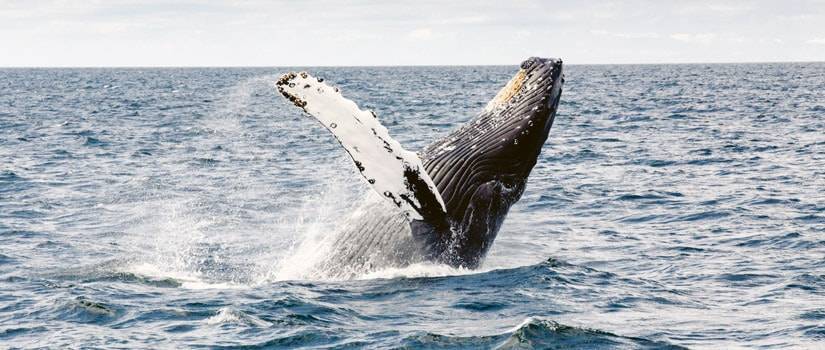Are Our Seas Starting to Fall Silent?

When people think of global warming it usually conjured up images of rising sea levels, unpredictable weather patterns and low land flooding, but there is another issue that few will have considered and it is a sobering thought.
Beyond the variable weather and melting ice caps, climate change is claiming another kind of victim – our seas are starting to fall silent.
Research has found that the sounds of the ocean are changing with the climate and waters that were once rich with life are being altered beyond recognition.
Oceanographer Kate Stafford is making a name for herself as she explores the effect of human activity on marine noise. Stafford has studied marine habitats across the globe and explored the diversity of the ocean from the tropics to the poles.
And sound is the sense by which most marine mammals see and use to communicate with each other. These sounds are also valuable warnings – echoes of ice patches or open water. The cacophony of sounds from the Arctic marine mammals produces an orchestra and one that can be recorded on hydrophones thanks to a low level of ambient sound.
But it is this low-level of ambient sound that is shifting due to greenhouse gas emissions. As temperatures rise, levels of seasonal sea ice fall. These decreases range from four weeks to six months, leading to an increase in open water seasons and drastically altering the habitats of marine mammals.
With less sea ice, sub-Arctic species are moving North. Fin whales and humpback whales have been monitored moving further North in what Stafford terms an “invasion of the Arctic”. It could lead to increased competition for food sources, or lead to new diseases among groups that have weaker or no resistance to certain illnesses.
Warmer temperatures are also leading to an increase in human activity in the Arctic. An increase in oil and gas exploration and extraction, with new opportunities for tourism and commercial shipping, are all taking their toll.
The noises and sounds of industry throughout the Arctic have been proven to increase the stress levels and even change the swimming and vocal behaviour of whales.
The noise is effectively drowning out the sound of natural life in the ocean, and altering the very way these animals view the world.
Latest posts by Craig Storey (see all)
- Meet our new rental partner – Accudata Ltd - 2nd March 2023
- The Top 10 Quietest Places on Earth - 19th November 2021
- Environmental noise monitoring, anytime, any place and anywhere - 25th October 2021
